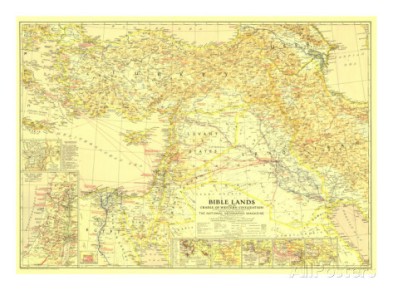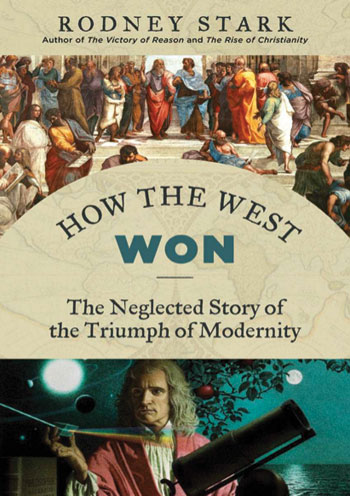Unfashionable History
A Review of How the West Won: The Neglected Story of the Triumph of Modernity
by Rodney Stark
Americans are becoming increasingly ignorant of how the modern world came to be what it is, says Rodney Stark. A generation ago, most college curricula included a course in Western Civilization that covered Western achievements in art, music, literature, philosophy, and science. Today those courses have all but disappeared on the spurious grounds that the West is but one of many civilizations and that it is ethnocentric and arrogant for Westerners to study it. So Stark is out to educate us, its beneficiaries, in the “remarkably unfashionable” story of our own heritage.
The most important thing to know on this subject is that “modernity is entirely the product of Western Civilization.” By modernity, he means, “that fundamental store of scientific knowledge and procedures, powerful technologies, artistic achievements, political freedoms, economic arrangements, moral sensibilities, and improved standards of living.”
In How the West Won, the Distinguished Professor of Social Sciences at Baylor University goes beyond the old “Western Civ” courses, which usually merely described the rise of the West. Stark tells the neglected story of why these monumental contributions to human good grew out of the West, and not out of Asia or the Islamic world. To explore this panhistoric phenomenon – as a set of explicable effects produced by discernible causes – is not ethnocentric, but is rather, “the only way to develop an informed understanding of how and why the modern world emerged as it did.”In the process, Stark refutes much of the “received wisdom” about Western history. Here are a few examples:
- Dramatic changes in climate, including a four-century-long warming trend followed by a “Little Ice Age” played major beneficial roles in the rise of modernity.
- There were no “Dark Ages.” The Dark Ages myth was made up by “eighteenth-century intellectuals determined to slander Christianity and to celebrate their own sagacity.” In reality, the entire era was one of remarkable progress and innovation.
- The brilliant achievements of the “Scientific Revolution” (which is also a misnomer) were the culmination of centuries of step-by-step progress.
- Europe did not grow rich by exploiting its colonies. Rather, the colonies drained European wealth – even as they became the beneficiaries of European advances.
Throughout, Stark gives primacy to ideas. He does so because it was certain, specific ideas that gave rise to all those desirable societal traits – democracy, science, free enterprise, etc. – that have characterized Western nations and that are now revolutionizing life in the rest of the world.
Ultimately, Stark says, those potent – and truly revolutionary – ideas are the product of Christianity. “The most fundamental key to the rise of Western Civilization has been the dedication of so many of its most brilliant minds to the pursuit of knowledge. Not to illumination. Not to enlightenment. Not to wisdom. But to knowledge. And the basis for this commitment to knowledge was the Christian commitment to theology” – the highly rational discipline of formal reasoning about God, with an emphasis on discovering his nature.
 With lively, in-depth narratives, Stark demonstrates how Christian ideas drove everything that is good and desirable about Western modernity. Yes, Western Civilization has seen its failures, limitations, and discontents. Nevertheless, it far surpasses every known alternative, and is, in a very real sense, God’s gift to the world.
With lively, in-depth narratives, Stark demonstrates how Christian ideas drove everything that is good and desirable about Western modernity. Yes, Western Civilization has seen its failures, limitations, and discontents. Nevertheless, it far surpasses every known alternative, and is, in a very real sense, God’s gift to the world.
This article first appeared in Salvo magazine, Issue 30, Fall 2014
